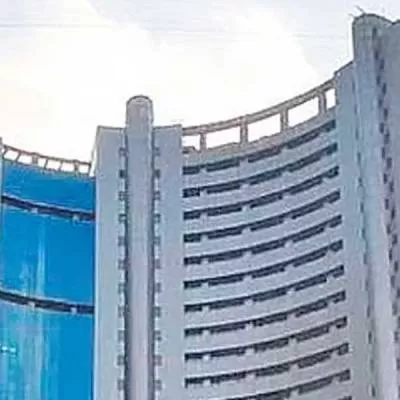- Home
- Real Estate
- Real estate sector's plea for lower costs, faster nods
Real estate sector's plea for lower costs, faster nods
India's real estate players are hoping that the Union Finance Minister's budget provisions, to be announced on February 28, will bring down the costs of finance for the construction sector, which they insist will play a major role in offering lower rates for their product.
Also on the real estate developers' wishlist is a sustained structure of governance for the sector and introduction of methods to reduce the time taken to obtain the permissions and clearances for a project. A delay in the completion of a project, mainly due to delayed clearances, always leads to cost escalation and higher prices for consumers, they argue.
Lalit Kumar Jain, national president of the Confederation of Real Estate Developers' Associations of India (Credai), said the finance minister should allow tax exemption for inputs used in construction of small houses, of under 60 sq m carpet area. Special housing zones on the lines of Special Economic Zones could also be created, with tax exemptions for constructing 45 sq m houses for low income groups and 30 sq m houses for the economically weaker sections, Jain said.
Credai suggested that a Real Estate Investment Trust be formed and called for special rental housing projects under the affordable segment, treating the expenditure as capital investment for long-term capital gains, exemption from income tax, service tax, value added tax and stamp duty for rental housing. Even the rental income from these projects must be exempt from income tax as there are substantial indirect benefits, the apex body has said.
Jones Lang LaSalle India, said considering that the budget is expected to be a populist one ahead of the 2014 polls, addressing the compromised GDP and skyrocketing inflation must be given the highest priority. Puri said the budget needs to increase infrastructure spending in urban areas with a view to unlock the value of neglected and hidden land assets in suburban and peripheral districts.
This will enable a more holistic growth for the real estate markets in our over-burdened metros and allow the demand for housing to spread over a larger canvas. The increased demand in peripheral locations where infrastructure has made the real estate markets more viable will also help bring down prices in the central areas, he said.
India's real estate players are hoping that the Union Finance Minister's budget provisions, to be announced on February 28, will bring down the costs of finance for the construction sector, which they insist will play a major role in offering lower rates for their product. Also on the real estate developers' wishlist is a sustained structure of governance for the sector and introduction of methods to reduce the time taken to obtain the permissions and clearances for a project. A delay in the completion of a project, mainly due to delayed clearances, always leads to cost escalation and higher prices for consumers, they argue. Lalit Kumar Jain, national president of the Confederation of Real Estate Developers' Associations of India (Credai), said the finance minister should allow tax exemption for inputs used in construction of small houses, of under 60 sq m carpet area. Special housing zones on the lines of Special Economic Zones could also be created, with tax exemptions for constructing 45 sq m houses for low income groups and 30 sq m houses for the economically weaker sections, Jain said. Credai suggested that a Real Estate Investment Trust be formed and called for special rental housing projects under the affordable segment, treating the expenditure as capital investment for long-term capital gains, exemption from income tax, service tax, value added tax and stamp duty for rental housing. Even the rental income from these projects must be exempt from income tax as there are substantial indirect benefits, the apex body has said. Jones Lang LaSalle India, said considering that the budget is expected to be a populist one ahead of the 2014 polls, addressing the compromised GDP and skyrocketing inflation must be given the highest priority. Puri said the budget needs to increase infrastructure spending in urban areas with a view to unlock the value of neglected and hidden land assets in suburban and peripheral districts. This will enable a more holistic growth for the real estate markets in our over-burdened metros and allow the demand for housing to spread over a larger canvas. The increased demand in peripheral locations where infrastructure has made the real estate markets more viable will also help bring down prices in the central areas, he said.
























